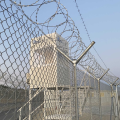Project finds postcard from Hitler
A postcard from Adolf Hitler as a young soldier has been uncovered by Europeana 1914-18, an archival project partnered by Oxford University and the British Library.
The letter was written from Munich while Hitler was on leave from the First World War after being injured. In the letter written to Karl Lanzhammer in December 1916, the future dictator describes a recent trip to the dentist and expresses his desire to return to the front line – and misspells ‘sofort’ (German for ‘immediately’) as ‘soffort’. Lanzhammer had been a member of the same regiment as Hitler at the start of the war.
The postcard reads: ‘Dear Lanzhammer, I am now in Munich at the Ersatz Btl. Currently I am under dental treatment. By the way I will report voluntarily for the field immediately. Kind regards A. Hitler’.
Dr Stuart Lee, an English academic at Oxford University who is one of the project leaders, said: ‘When I was first handed the postcard, I felt a shudder run through me. I found it hard to believe that at a local event to record ordinary people’s stories, I was seeing a previously unknown document in Hitler’s own hand. Europeana’s project is remarkable in that it can bring in the most meaningful story in a person’s whole existence - the Bible that saved a life, for example - as well as the mundane and misspelt jottings of the future dictator.’
Dr Thomas Weber, historian at Aberdeen University who is an expert on the period, said: ‘The new postcard gives fresh light to the view that Hitler only communicated after the first few months of the war with the members of his 'surrogate family', namely the members of regimental HQ. It also reinforces the view that Hitler desperately wanted to return to the front while on leave which was highly unusual for a soldier of his regiment. Hitler, I believe, was more driven by an urge to return to his closest social network that he experienced ever since the death of his mother than a love for war.’
The postcard was a submission to the Europeana 1914-1918 archive at a roadshow in Munich. The archive is the successor to the University of Oxford’s Great War Archive, which was funded by JISC. The archive’s experts are travelling across Europe holding roadshows to encourage people to bring along their World War One memorabilia for it to be analysed and digitized.
 New database sheds light on violence in Greek detention facilities
New database sheds light on violence in Greek detention facilities
 Oxford researchers comment on the plastic waste crisis for Earth Day 2024
Oxford researchers comment on the plastic waste crisis for Earth Day 2024
 New trial using skin patches as an ‘early warning system’ to spot lung transplant rejection
New trial using skin patches as an ‘early warning system’ to spot lung transplant rejection
 New study on Amazonia's fire crises urges action ahead of the next burning season
New study on Amazonia's fire crises urges action ahead of the next burning season
 New heart disease calculator could save lives by identifying high-risk patients missed by current tools
New heart disease calculator could save lives by identifying high-risk patients missed by current tools